Tahir Has Become a Canadian Citizen
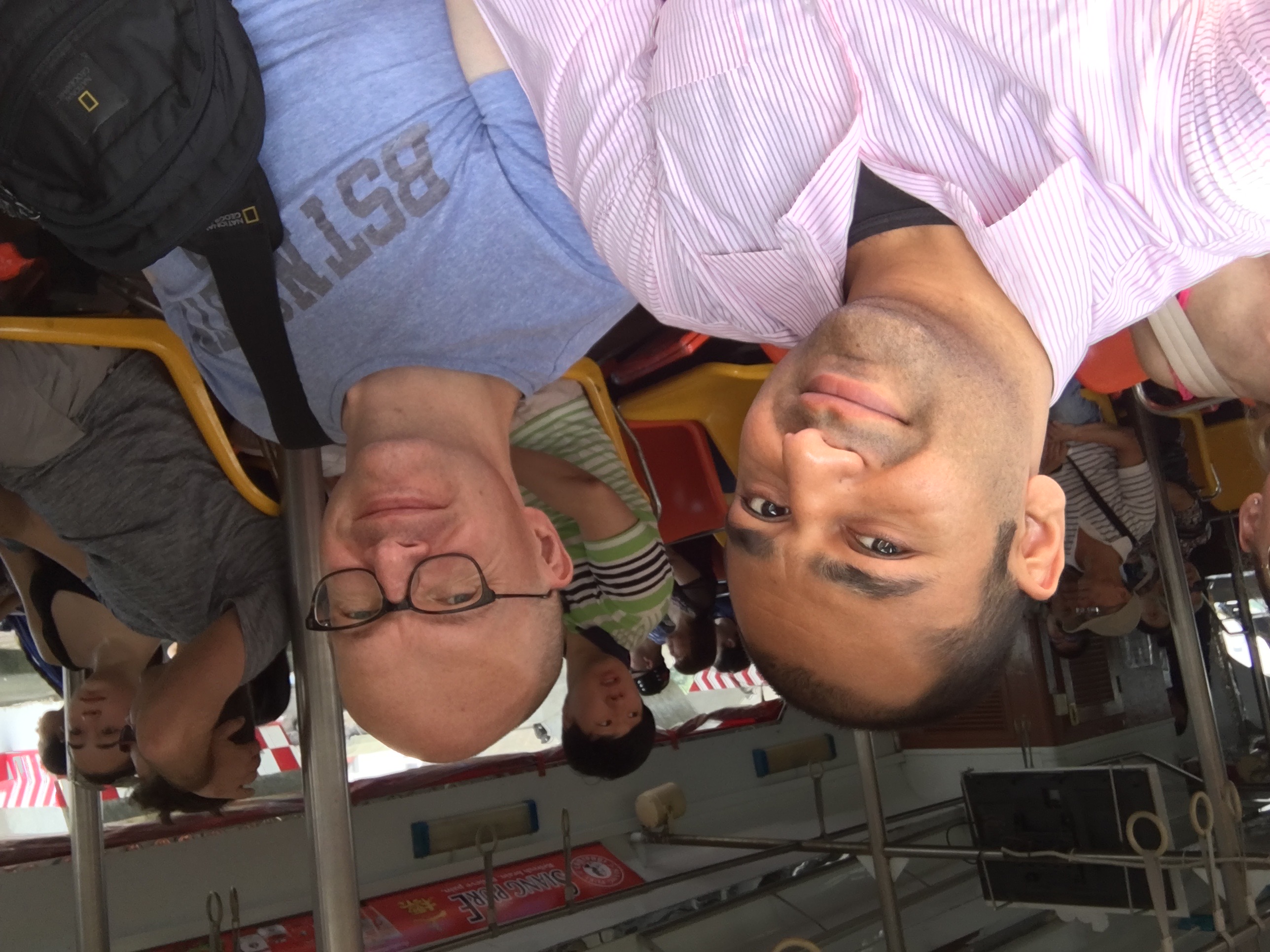
With Tahir in Bangkok, Thailand, April 2017
A letter to friends (celebrating Tahir becoming a Canadian Citizen):
Dear Friends,
Ten years ago, in 2015, a young man entered my life in Bangkok. Vulnerable, frightened, and scarred by the cruelties he had already endured — first in Pakistan, and then again in Thailand — Tahir was, at that moment, simply fighting to survive. I had no idea then that our meeting would set in motion one of the most meaningful journeys of my life.
What began as an encounter between two strangers soon became a shared mission — not just his and mine, but one embraced by many of you. Friends, colleagues, and kind souls who refused to look away joined in to change one person’s fate. Together, we tried to make sure that fear would no longer define his existence, and to offer him the safety and dignity that every human being deserves. None of us could have imagined how difficult that road would be — nor how beautiful.
Together, we fought for recognition: for the first identity card that would prove he existed, for acknowledgment of his vulnerability, for protection status, and for the right to live without fear. We searched for solutions everywhere — Thailand, Malaysia, Europe, New Zealand, Australia, the United States — until finally, a door opened in Canada.
The hope was immense, but so was the work. There were endless forms, negotiations, appeals, and practical worries: Where would he stay? How would we fund it? Would governments listen? Could we convince them that Tahir was a person of trust and kindness, not a threat?
Years passed. And then, in 2018, I wrote this post — full of joy and relief, though shadowed by fear. For before freedom came detention. Thailand’s system demanded that even recognised refugees serve weeks behind bars before being allowed to leave. Those days were among the hardest — waiting, worrying, praying that he would make it through. And then he did.
He landed in Canada — fragile, hopeful, and determined. From there, a new chapter began: learning, adapting, finding work, making friends, building a new life step by step. There were challenges and tears, but also moments of laughter, new beginnings, and the gradual rediscovery of trust.
Over the years, Tahir became independent. He found stability, started to support others in his community, met the love of his life, married, and eventually welcomed little Hania into the world. And now, ten years after that first meeting on a hot Bangkok street, Tahir has become a citizen of Canada.
I find myself thinking not only of him, but of all of you — friends, colleagues, and kind strangers — who helped make this happen. Some of you were there from the very beginning, others joined along the way. You offered legal help, donations, encouragement, and compassion when it was most needed. You opened doors, vouched for him, stood by him. You helped one human being reclaim his life.
Thank you for that.
And thank you, Tahir — for your courage, humility, and faith. For teaching us what resilience really means. For never giving in to bitterness or hate. For showing that even after unimaginable suffering, kindness can still win.
The world is loud and fast, and it rarely stops to celebrate. So let us pause for a moment now — to celebrate this success, this friendship, this quiet triumph of humanity.
With gratitude and love,
Roman
The Season of Light and Silence
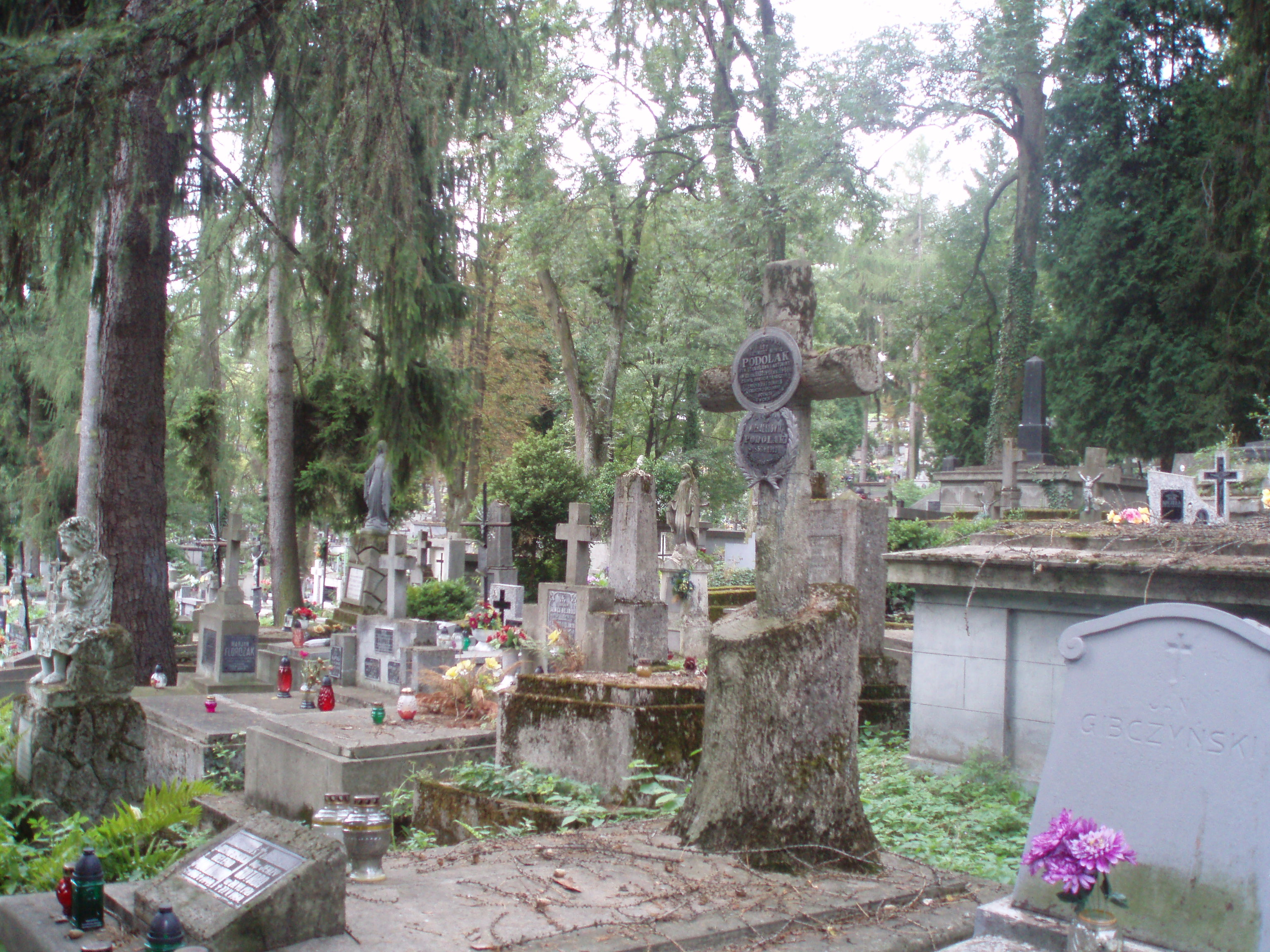
Municipal Cemetery, Przemyśl, Poland, September 2006
The Season of Light and Silence
Caracas, November 2025
I’ve always loved cemeteries.
Not in a morbid way, but as places of quiet beauty — spaces where time softens and the world whispers. I think this love began in childhood, rooted deep in Polish soil, in those sacred November evenings when my mother and I would walk among candles flickering in the dusk. All Saints’ Day was never sad. It was golden.
Every year, around this time, cemeteries back home glow with thousands of lanterns — amber lights floating in the autumn mist. The air smells of fallen leaves, wax, and pine. Cold often arrives early. Sometimes snow. But somehow, it’s still colourful — chrysanthemums in fiery orange, crimson, and white, resting beside names carved in stone. People move gently. They speak in low voices. They clean the graves, place flowers, pause. There’s reverence in the air, and warmth, even in the frost. These are the days I carry with me wherever I go.
This year, I am in Caracas.
Last week, seeking that same spirit, I visited Cementerio del Este. It’s a very different kind of cemetery — wide, open, modern, without the stone angels or heavy ironwork I know so well. But it sits high on a hill, overlooking the city like a guardian. The silence there is lighter, more spacious, filled with tropical birdsong and the shimmer of heat. The green is lush, alive, unseasonal by European standards — but something in it stirred the same stillness in me.
I walked slowly among the graves, letting the names speak in silence. I thought of people I’ve lost — some long ago, others more recent — and of how memory works its gentle alchemy. The body may be gone, but the presence remains. In a phrase. In a gesture. In the warmth that returns, uninvited, on a quiet afternoon in October.
And somehow, despite the heat and the palms and the very un-November sun, I found myself fully inside the mood I cherish so deeply — the spirit of Wszystkich Świętych, the Polish All Saints’ Day. A season not of mourning, but of honouring. Of remembering. Of walking beside those who came before, if only for a few moments more.
Later that day, I shared a meal nearby with a friend. There were traditional Venezuelan dances, music, colour — as if the city itself wanted to remind me that life, too, continues. That remembrance can be joyful. That silence can be part of celebration.
I had hoped to be travelling at the end of the year — to Panama, perhaps even to Canada. But life, as it does, shifted. Work took unexpected turns. Plans changed. And so, it seems I’ll be staying in Caracas a while longer. I won’t be visiting friends just yet — but I will have the privilege of being here, in this resilient, surprising, vivid city. A city that offers its own kind of light.
And maybe that’s the deeper lesson of this season:
That presence matters more than place.
That memory travels with us.
That beauty finds its own way in.
The Music I Can’t Quite Hear — And Still Try to Sing
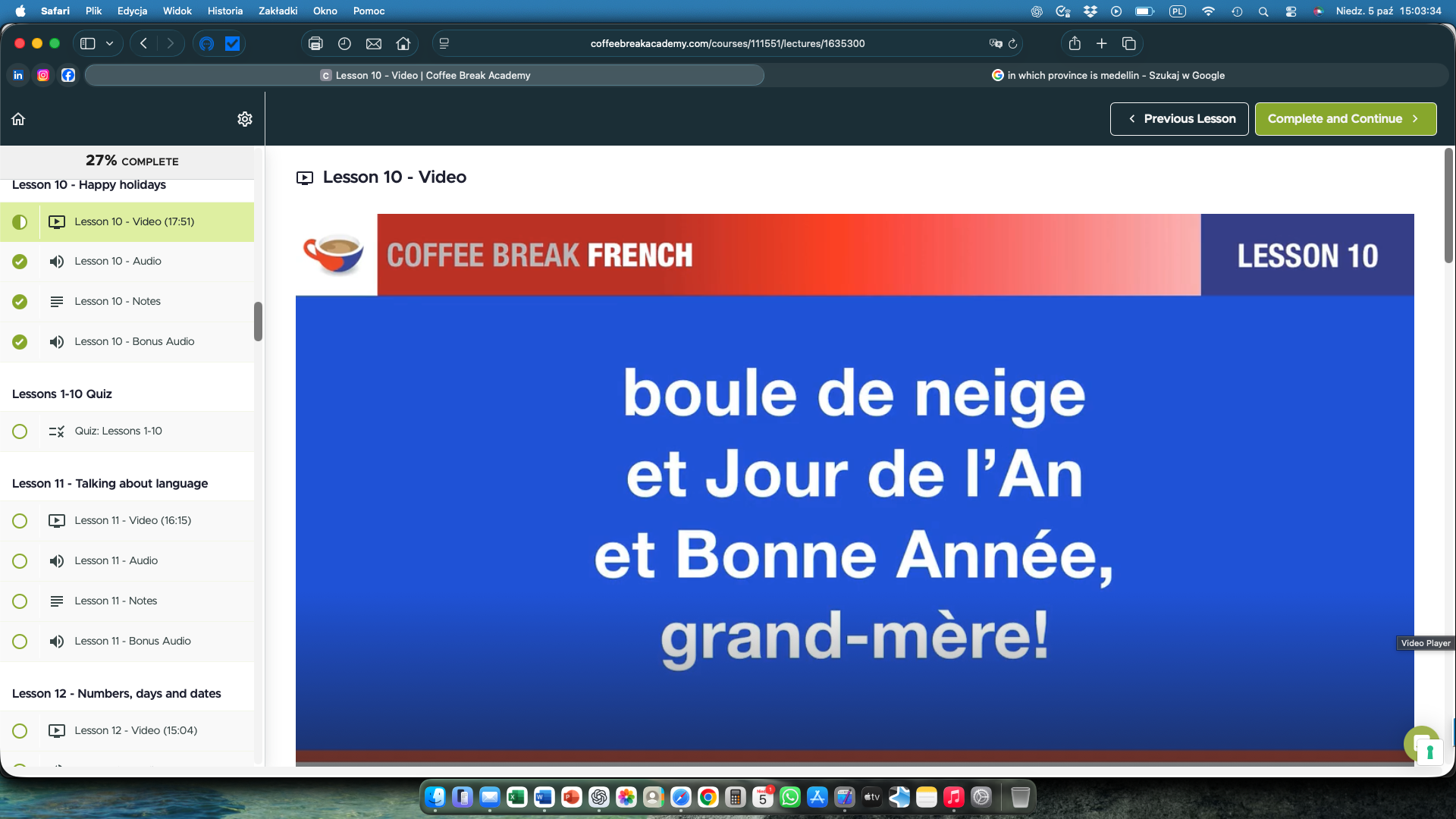
Learning French, Caracas, Venezuela, October 2025
The Music I Can’t Quite Hear — And Still Try to Sing
(On Language, Age, and the Joy of Trying)
Lately, I’ve begun learning French. Again.
I say “again” because like many things in life, it’s not the first time I’ve tried — only this time, I’m older, a little more patient, and perhaps a little more forgiving with myself.
French is proving difficult. Not because of its verbs or genders, or even the grammar that sneaks up on you from behind elegant turns of phrase. No — the real challenge is the sound. I’ve always been partially deaf, and now, in my fifties, my ears have grown no more cooperative. French is all breath and nuance, soft corners and hidden consonants. Whatever I try to say comes out heavy with a Polish accent, my vowels shaped by a lifetime of Slavic rhythm. I suspect it will always sound like that — and that’s all right.
This isn’t my first language adventure. Years ago, in Angola, I began learning Portuguese — out of necessity, at first. The language came wrapped in dust, in laughter, in late-night conversations and crowded markets. Later, in Mozambique, it deepened. I grew more confident. It became a part of my working life, my friendships, even my dreams.
Then came Spanish, which I picked up in anticipation of my posting to Panama. I studied hard, and this time, I learned it properly. For a while, my Portuguese and Spanish managed to live peacefully side by side. But then came Latin America in full — Venezuela, Colombia, conversations that flowed too fast — and now, like many in this region, I speak Portuñol. Portuguese with a Spanish heart. Spanish with Portuguese bones. A beautiful mess.
Along the way, there were other languages too. Russian, which fascinated me with its logic and weight. Danish, which I encountered unexpectedly during my training years in Denmark. Danish always felt like a language spoken from the back of the throat, half-swallowed by the North Sea winds — and yet it became familiar in its own strange way.
None of these languages came easily. Some arrived out of duty, others through love, and a few simply by accident. But each of them left something behind — a way of seeing, of listening, of connecting.
Now, as I wrestle with French pronunciation — the subtle u, the vanishing r, the nasal vowels that float just out of reach — I realise it’s no longer about fluency. It’s about presence. About keeping part of myself curious and alive. About accepting the limits of my hearing, my accent, my age — and still showing up.
Sometimes, I close the book and just listen. To a podcast I barely understand, to a passing conversation in a café, to my own voice trying to mimic a sound that doesn’t quite land. It’s humbling. And strangely beautiful.
We don’t always need to master a language to let it change us.
Shifting Currents
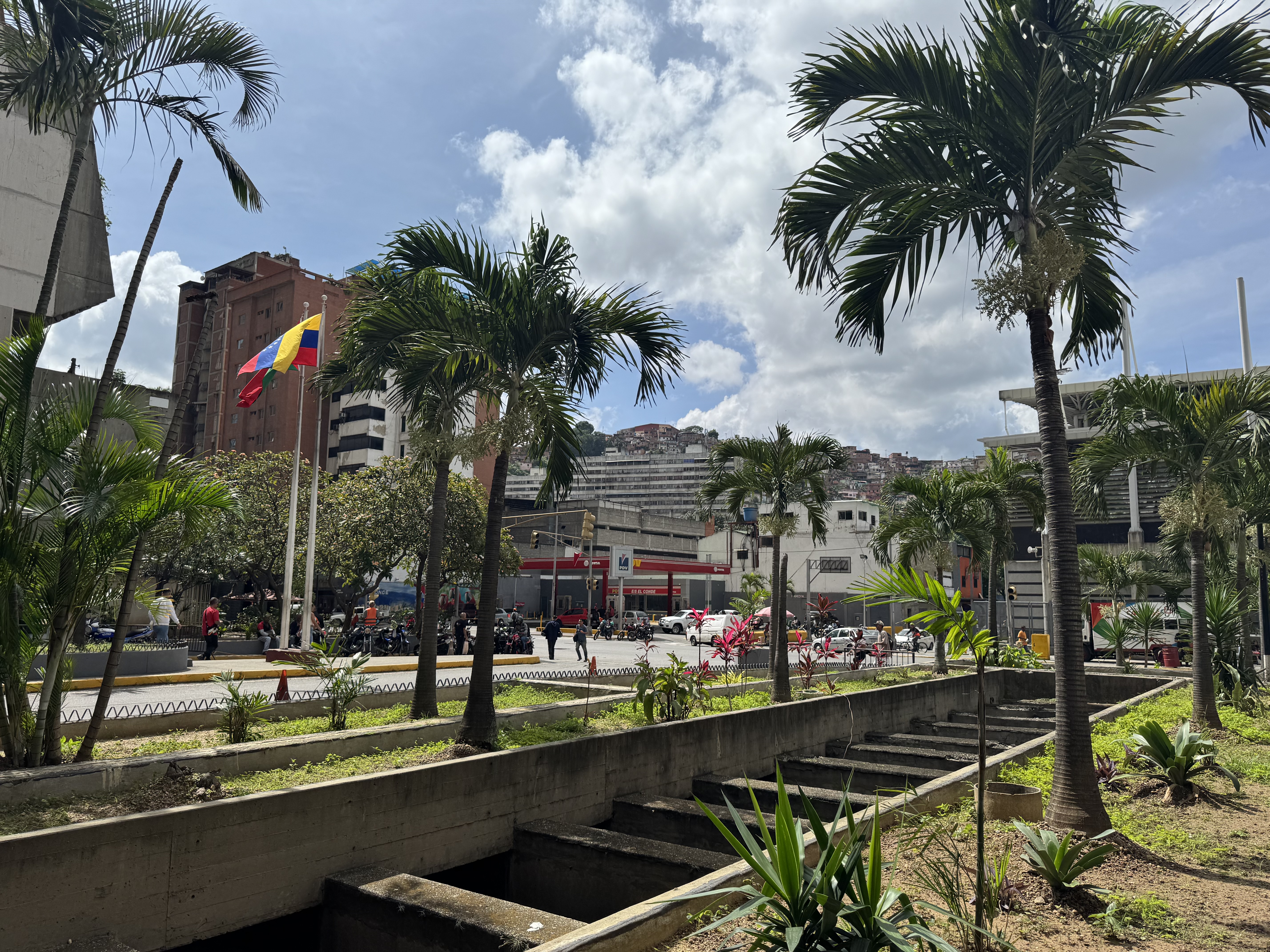
Walking Around the City, Caracas, Venezuela, September 2025
Caracas continues to move at full speed — the pace of work rarely slows, and the days often blur into one another. Meetings, decisions, documents, calls — a rhythm that demands attention, precision, and, above all, presence. Lately, much of my focus has turned toward preparations for the rotation that lies ahead in 2026. Though still some months away, the groundwork is already being laid. Transition is never just a logistical task — it’s an emotional one too, full of small goodbyes and quiet reflections, even before departure begins.
In November, I’ll be travelling to Panama for a seminar — a welcome change of scenery and an opportunity to reconnect with colleagues and friends in a setting that feels both familiar and refreshingly different. The region continues to offer its own blend of intensity and grace, and I look forward to the conversations that will take place there.
Outside the office hours, another journey unfolds: my writing project. The memoir continues to grow, word by word, chapter by chapter. Memory is a complex companion — sometimes vivid and immediate, sometimes hesitant and cloaked in mist. But I keep returning to the page, trusting the process, allowing stories to take shape in their own time. It’s a strange and beautiful undertaking — part excavation, part offering.
Like many of us, I follow political developments around the world — and, like many, I feel a growing unease. The global headlines are often troubling, and the sense of powerlessness can be overwhelming. Much of it lies far beyond my influence. So I try to find balance — to stay informed, yes, but not consumed. I make a conscious effort to step away from the screen, to walk, to meet friends, to engage in moments that restore.
In that sense, Caracas is generous. Walking here is easy, and often enchanting. Bougainvillaea spills over walls, the scent of arepas drifts from corner shops, and the city’s light shifts beautifully across the hills. These small walks — these small escapes — offer their own kind of resilience.
Lately, I’ve also begun learning French. It’s going slowly — not because of the grammar or vocabulary, but the pronunciation. That, it seems, is a mountain of its own. Whatever I try to say comes out rather mangled, heavy with my Polish accent. I suspect it may always sound that way. At over fifty, picking up new accents feels like coaxing music out of a stubborn old instrument. But I keep trying, if only for the joy of learning and the humbling reminder of how difficult language can be.
If you’re curious to follow my writing journey, I invite you to visit the dedicated page for the project:
👉 Memoir of a Wandering Spirit
As always, thank you for reading — and for walking with me, in small ways, through these many crossings.
Newsletter to Friends
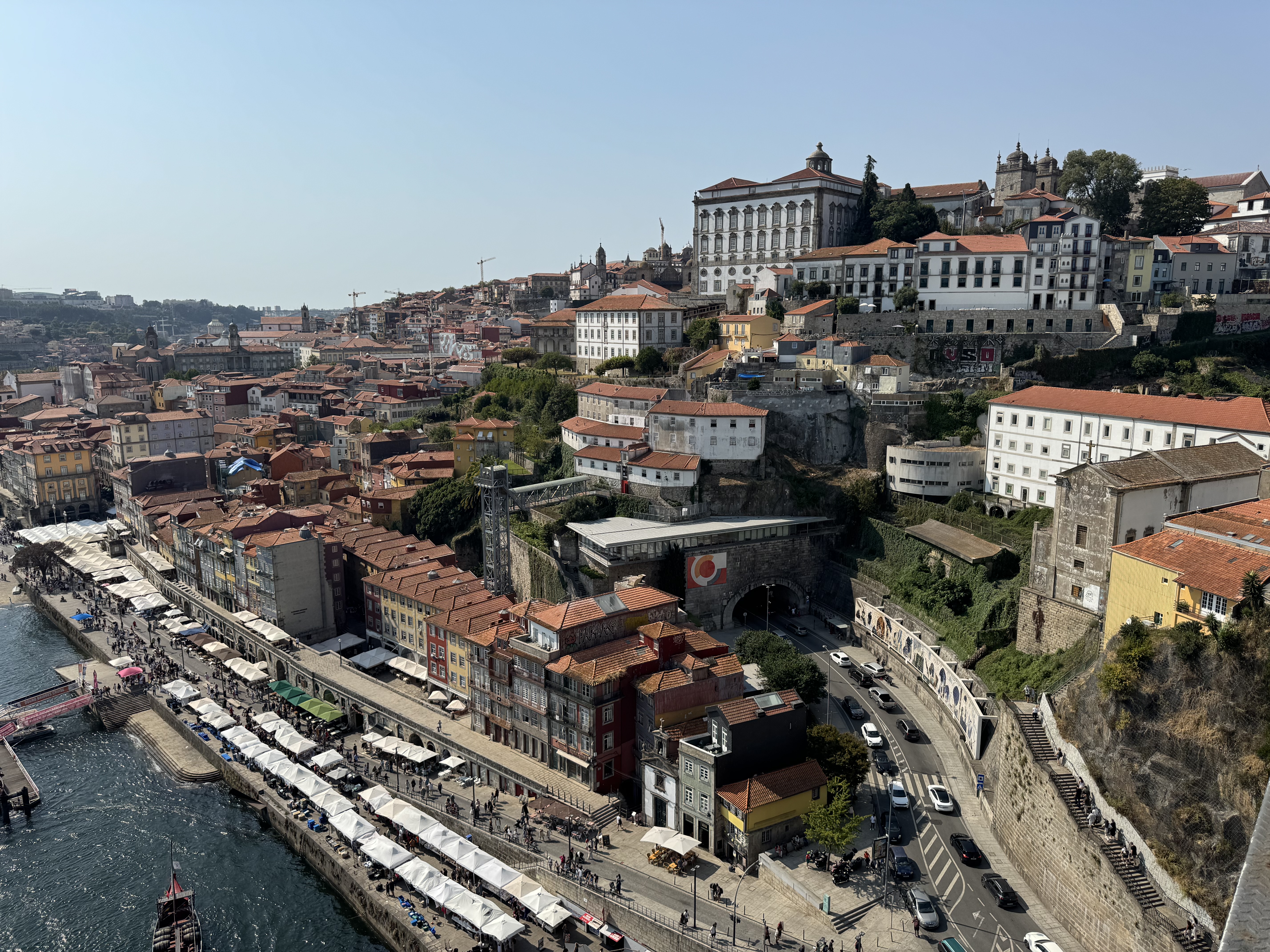
Centre of Porto, Portugal, August 2025
Here comes the newsletter sent to friends:
ESP: La versión en español sigue a la versión en inglés
POL: Polska wersja na końcu wiadomości
English Version
Dear Friends,
I have just returned from my summer in Portugal, and it felt like stepping into a painting made of light. The days there gave me exactly what I needed: time to breathe, to gather myself, to feel sun on my skin and sea wind in my lungs. There were long afternoons wandering through whitewashed towns, evenings with friends around the table, conversations that lasted until night deepened, and mornings where the Atlantic seemed to hold the horizon still. Portugal always carries a piece of my heart, and this summer it gave me back the strength I hadn’t realised I was missing.
Back in Caracas, life returns to its rhythm of work and responsibility. Yet, outside that daily rhythm, there is another pulse that drives me now more than ever: the writing of Memoir of a Wandering Spirit. What began as a quiet idea has grown into a journey of its own — one that pulls me deep into memories, landscapes, and people who shaped me. Many of you have offered encouragement already, and I want to thank you. Your words remind me that this story matters beyond myself, and they keep me moving forward.
So far, the manuscript carries me from a childhood in Biegonice, a village wrapped in orchards and coal smoke, into the long corridors of hospitals — Prokocim, Konstancin, Zakopane. These early chapters are filled with both confinement and unexpected wonder: nurses who became storytellers, doctors who weighed life against risk, and the operation during Martial Law that saved me.
From there the story opens outward. School years in Nowy Sącz brought letters that travelled further than I could, pen-friends who showed me the world through paper and ink, and first encounters with love and loss. Early adulthood was restless: translation work in offices that felt too small, the struggle of London — sometimes homeless, often hungry, but never willing to let go of the dream of studying abroad. Kraków followed, its classrooms austere, its streets romantic, but its promise never quite fitting — like the second-hand suit I wore to my first lecture, stiff and ill-matched.
College time in Denmark was different. There I found not only an education but a community: growing food, debating through the night, preparing to travel to the wider world. From there the world broke open — India’s dazzling chaos and aching contradictions, Pakistan’s shadows where danger came too close, Iran and Turkey where the journey home became both pilgrimage and test. These travels changed me — not in one moment, but in a slow unfolding of awe, exhaustion, and the recognition that borders divide far more than land.
Later chapters bring quieter passages: Iceland, where silence was sacred and friendships anchored me; Canada, where family ties offered warmth but belonging felt incomplete. Then came Angola: Quissala’s orphanage, Luanda’s streets pulsing with contradictions, and Pedro, a boy once stolen into war who longed to become a teacher. His story became one of the most powerful I have ever carried.
The narrative moves again: Finland’s snowbound stillness, New York’s restless skyline, Nowy Sącz’s return, and then Paris, where humanitarian training rooms and late-night walks by the Seine opened the next chapter of my life. Afghanistan followed — Kabul at dawn, the weight of silence in Ghazi Stadium, the children in the wards. And then Sudan, where the Nile divided not just land but lives: Khartoum’s boulevards, Wau’s hunger wards, the sound of bombs in the distance, and the fragile miracle of survival.
Here are a few glimpses from the draft, to give you a taste of its voice:
“Kacper was born in a house that smelled of bread and coal, in a village with a name like a poem: Biegonice. It clung to the edge of Nowy Sącz like a quiet question, wrapped in orchards and seasons and neighbours who remembered the war as if it were yesterday.”
“It was powerful because it was ordinary — ordinary for Luanda, but so utterly extraordinary to him. He realised, for the first time with painful clarity, that what seemed like destitution to him was daily life for the people around him. It wasn’t a spectacle. It wasn’t exceptional. It was simply life — ordinary in ways he had never understood.”
“Afghanistan had taught him many things, but that day it taught him this: cruelty can wear the face of your neighbour, and kindness can live in the same heart that has seen too much to know the difference. And perhaps the hardest truth of all — that some things you carry away from a place are not its mountains.”
“Beyond the runway, the Nile curved through the city, broad and unhurried, carrying with it the weight of a war that refused to end.”
So far, this is where the manuscript has taken me. But much remains ahead — finishing the first draft, filling the gaps, then returning again and again through the patient, difficult process of editing and shaping until the story finds its true form.
For now, I carry on, guided by memory, by fragments of journals and photographs, but also by the encouragement many of you have given me. Thank you for that — it means more than I can express.
I hope you, too, have found rest in these months: a summer in the north, a winter in the south, moments that gave you pause and renewal. I would love to hear how you’ve been, what carried you through, what surprised you.
With warmth,
Roman
⸻
Versión en Español
Queridos amigos,
Acabo de regresar de mi verano en Portugal, y fue como entrar en un cuadro hecho de luz. Los días allí me dieron lo que más necesitaba: tiempo para respirar, para recomponerme, para sentir el sol en la piel y el viento del mar en los pulmones. Hubo largas tardes paseando por pueblos encalados, noches con amigos alrededor de la mesa, conversaciones que se alargaban hasta bien entrada la noche, y mañanas en que el Atlántico parecía detener el horizonte. Portugal siempre guarda un pedazo de mi corazón, y este verano me devolvió una fuerza que no sabía que había perdido.
De vuelta en Caracas, la vida retoma su ritmo de trabajo y responsabilidad. Sin embargo, fuera de ese ritmo cotidiano, hay otro pulso que me impulsa ahora más que nunca: la escritura de Memoir of a Wandering Spirit. Lo que empezó como una idea silenciosa se ha convertido en un viaje propio — uno que me lleva profundamente a recuerdos, paisajes y personas que me marcaron. Varios de vosotros ya me habéis ofrecido palabras de ánimo, y os lo agradezco de corazón. Vuestro apoyo me recuerda que esta historia importa más allá de mí, y me da fuerzas para seguir.
Hasta ahora, el manuscrito me ha llevado desde la infancia en Biegonice, un pueblo rodeado de huertos y humo de carbón, hasta los largos pasillos de hospitales — Prokocim, Konstancin, Zakopane. Esos primeros capítulos están llenos tanto de encierro como de maravillas inesperadas: enfermeras que se hicieron cuentacuentos, médicos que pesaban la vida contra el riesgo, y la operación en plena Ley Marcial que me salvó.
Después la historia se abre. Los años escolares en Nowy Sącz trajeron cartas que viajaban más lejos de lo que yo podía, amigos por correspondencia que me mostraron el mundo con papel y tinta, y los primeros encuentros con el amor y la pérdida. La primera adultez fue inquieta: trabajos de traducción en oficinas demasiado pequeñas, las luchas en Londres — a veces sin techo, a menudo con hambre, pero nunca renunciando al sueño de estudiar en el extranjero. Luego vino Cracovia, con aulas austeras y calles románticas, pero con promesas que nunca llegaron a encajar — como el traje de segunda mano que llevaba a mis primeras clases, rígido y desajustado.
El tiempo de universidad en Dinamarca fue distinto. Allí encontré no solo una educación, sino una comunidad: cultivar la tierra, debatir hasta la madrugada, prepararme para viajar por el mundo. Desde allí, el horizonte se abrió: la India deslumbrante y contradictoria, Pakistán con sombras donde el peligro estaba demasiado cerca, Irán y Turquía, donde el camino de regreso se volvió peregrinaje y prueba. Esos viajes me cambiaron poco a poco — no en un solo momento, sino en un lento despliegue de asombro, cansancio y la certeza de que las fronteras dividen mucho más que la tierra.
Los capítulos siguientes traen pasajes más tranquilos: Islandia, donde el silencio era sagrado y las amistades me sostenían; Canadá, donde los lazos familiares ofrecieron calor, aunque sin un verdadero sentido de pertenencia. Luego llegó Angola: el orfanato de Quissala, las calles de Luanda palpitando contradicciones, y Pedro, un muchacho arrancado por la guerra que soñaba con ser maestro. Su historia se convirtió en una de las más poderosas que he llevado conmigo.
La narrativa se mueve de nuevo: la quietud nevada de Finlandia, el horizonte inquieto de Nueva York, el regreso a Nowy Sącz, y luego París, donde las salas de formación humanitaria y los paseos nocturnos junto al Sena abrieron el siguiente capítulo de mi vida. Después llegó Afganistán — Kabul al amanecer, el peso del silencio en el estadio Ghazi, los niños en las salas de hospital. Y luego Sudán, donde el Nilo no solo divide tierras sino vidas: los bulevares de Jartum, las salas de desnutrición en Wau, el sonido de bombas a lo lejos, y el milagro frágil de la supervivencia.
Aquí comparto algunos fragmentos del borrador, para daros un sabor de su voz:
«Kacper nació en una casa que olía a pan y carbón, en un pueblo con un nombre como un poema: Biegonice. Se aferraba al borde de Nowy Sącz como una pregunta silenciosa, rodeado de huertos, estaciones y vecinos que recordaban la guerra como si hubiera sido ayer.»
«Era poderoso porque era ordinario — ordinario para Luanda, pero tan absolutamente extraordinario para él. Se dio cuenta, por primera vez con dolorosa claridad, de que lo que a él le parecía miseria era la vida cotidiana de la gente que lo rodeaba.»
«Afganistán le enseñó muchas cosas, pero ese día le enseñó esto: la crueldad puede llevar el rostro de tu vecino, y la bondad puede vivir en el mismo corazón que ha visto demasiado como para distinguir ya la diferencia.»
«Más allá de la pista, el Nilo se curvaba por la ciudad, amplio e imperturbable, llevando consigo el peso de una guerra que se negaba a terminar.»
Hasta aquí ha llegado el manuscrito. Pero queda aún mucho por hacer — terminar el primer borrador, llenar los huecos, y luego el paciente proceso de editar y dar forma para que la historia pueda vivir en la página.
Por ahora sigo adelante, guiado por recuerdos, fragmentos de diarios y fotografías, pero también por el ánimo que muchos de vosotros me habéis dado. Gracias — significa más de lo que puedo expresar.
Espero que también vosotros hayáis encontrado descanso en estos meses: un verano en el norte, un invierno en el sur, momentos que os hayan regalado pausa y renovación. Me encantaría saber cómo estáis, qué os ha sostenido, qué os ha sorprendido.
Con cariño,
Roman
⸻
Polska wersja
Kochani,
Właśnie wróciłem z lata spędzonego w Portugalii i było to jak wejście w obraz namalowany światłem. Te dni dały mi dokładnie to, czego potrzebowałem: czas, by odetchnąć, nabrać sił, poczuć słońce na skórze i wiatr znad oceanu w płucach. Były długie popołudnia w bielonych miasteczkach, wieczory z przyjaciółmi przy stole, rozmowy przeciągające się do późnej nocy i poranki, gdy Atlantyk zdawał się zatrzymywać horyzont. Portugalia zawsze nosi we mnie kawałek serca, a tego lata podarowała mi energię, której brak uświadomiłem sobie dopiero, gdy ją odzyskałem.
Z powrotem w Caracas życie toczy się swoim rytmem pracy i obowiązków. A jednak poza tym codziennym biegiem jest drugi puls, który prowadzi mnie mocniej niż kiedykolwiek: pisanie Memoir of a Wandering Spirit. To, co zaczęło się od cichej myśli, przerodziło się w podróż samą w sobie — w głąb pamięci, krajobrazów i ludzi, którzy mnie ukształtowali. Wielu z Was podzieliło się ze mną słowami wsparcia i chcę za to szczerze podziękować. To przypomina mi, że ta historia ma sens także poza mną samym i daje siłę, by pisać dalej.
Do tej pory rękopis prowadzi od dzieciństwa w Biegonicach, wiosce pachnącej chlebem i węglem, przez długie korytarze szpitali w Prokocimiu, Konstancinie i Zakopanem. W tych pierwszych rozdziałach obok bólu i ograniczeń pojawiają się też cudowne chwile: pielęgniarki snujące opowieści, lekarze ważący życie z ryzykiem, i operacja w czasie Stanu Wojennego, która ocaliła mi przyszłość.
Później historia otwiera się szerzej. Lata szkolne w Nowym Sączu przyniosły listy wędrujące dalej niż ja sam, przyjaźnie korespondencyjne, które pokazywały świat na papierze, a także pierwsze spotkania z miłością i ze stratą. Wczesna dorosłość była pełna niepokoju: tłumaczenia w biurach za ciasnych, by pomieścić marzenia, trudne lata w Londynie — czasem bez dachu nad głową, często głodny, ale nigdy bez marzenia o studiach za granicą. Potem Kraków — z surowymi salami wykładowymi i romantycznymi ulicami, ale też obietnicami, które nigdy nie pasowały, jak garnitur z drugiej ręki, który włożyłem na pierwszy wykład, sztywny i niedopasowany.
Czas studiów w Danii był zupełnie inny. Tam znalazłem nie tylko edukację, ale i wspólnotę: pracę w polu, nocne dyskusje, przygotowania do podróży po świecie. Stamtąd droga zawiodła mnie dalej: Indie — olśniewające i pełne sprzeczności, Pakistan z cieniem zagrożenia, Iran i Turcja, gdzie powrót do Europy stał się jednocześnie pielgrzymką i próbą. Te podróże zmieniały mnie powoli — nie w jednym momencie, lecz w stopniowym otwieraniu się na zachwyt, zmęczenie i świadomość, że granice dzielą znacznie więcej niż tylko ziemię.
Kolejne rozdziały to spokojniejsze przejścia: Islandia, gdzie cisza była świętością, a przyjaźnie dawały zakorzenienie; Kanada, gdzie więzi rodzinne dawały ciepło, choć bez poczucia pełnej przynależności. Potem Angola: sierociniec w Quissali, ulice Luandy pulsujące sprzecznościami, i Pedro — chłopiec zabrany przez wojnę, który marzył, by zostać nauczycielem. Jego historia stała się jedną z najważniejszych, które niosę w sobie.
Opowieść biegnie dalej: śnieżna Finlandia, niepokój Nowego Jorku, powrót do Nowego Sącza i wreszcie Paryż — z salami szkoleniowymi organizacji humanitarnych i nocnymi spacerami nad Sekwaną, które otworzyły nowy rozdział mojego życia. Potem Afganistan — Kabul o świcie, ciężar ciszy na stadionie Ghazi, dzieci w szpitalnych salach. I Sudan, gdzie Nil dzieli nie tylko ziemię, lecz także ludzkie losy: ulice Chartumu, oddziały niedożywionych dzieci w Wau, huk bomb w oddali i krucha codzienność przetrwania.
Kilka fragmentów rękopisu, aby dać Wam przedsmak jego głosu:
„Kacper urodził się w domu, który pachniał chlebem i węglem, we wsi o nazwie jak wiersz: Biegonice. Przylegała do Nowego Sącza jak ciche pytanie, otulona sadami, porami roku i sąsiadami, którzy pamiętali wojnę tak, jakby była wczoraj.”
„Było to potężne, ponieważ było zwyczajne — zwyczajne dla Luandy, ale dla niego absolutnie niezwykłe. Zrozumiał po raz pierwszy, z bolesną jasnością, że to, co jemu wydawało się nędzą, dla ludzi wokół było codziennością.”
„Afganistan nauczył go wielu rzeczy, ale tego dnia nauczył go tego: okrucieństwo może nosić twarz sąsiada, a dobroć może żyć w tym samym sercu, które widziało już zbyt wiele, by umieć rozróżniać.”
„Za pasem startowym Nil zakrzywiał się przez miasto, szeroki i niewzruszony, niosąc ze sobą ciężar wojny, która nie chciała się skończyć.”
Na razie tyle udało się napisać. Ale wciąż czeka mnie ogrom pracy — ukończenie pierwszego rękopisu, uzupełnienie brakujących fragmentów, a potem powolny, cierpliwy proces redagowania i nadawania historii ostatecznego kształtu.
Idę dalej, prowadzony przez pamięć, przez fragmenty dzienników i fotografie, ale także przez wsparcie, które od wielu z Was już otrzymałem. Dziękuję — znaczy to dla mnie więcej, niż potrafię wyrazić.
Mam nadzieję, że i Wy znaleźliście w ostatnich miesiącach chwilę odpoczynku — lato na północy, zimę na południu, momenty, które pozwoliły się zatrzymać i odetchnąć. Bardzo chciałbym usłyszeć, co u Was, co Was niosło i co Was zaskoczyło.
Serdecznie Was pozdrawiam,
Roman
Counting Down to Portugal
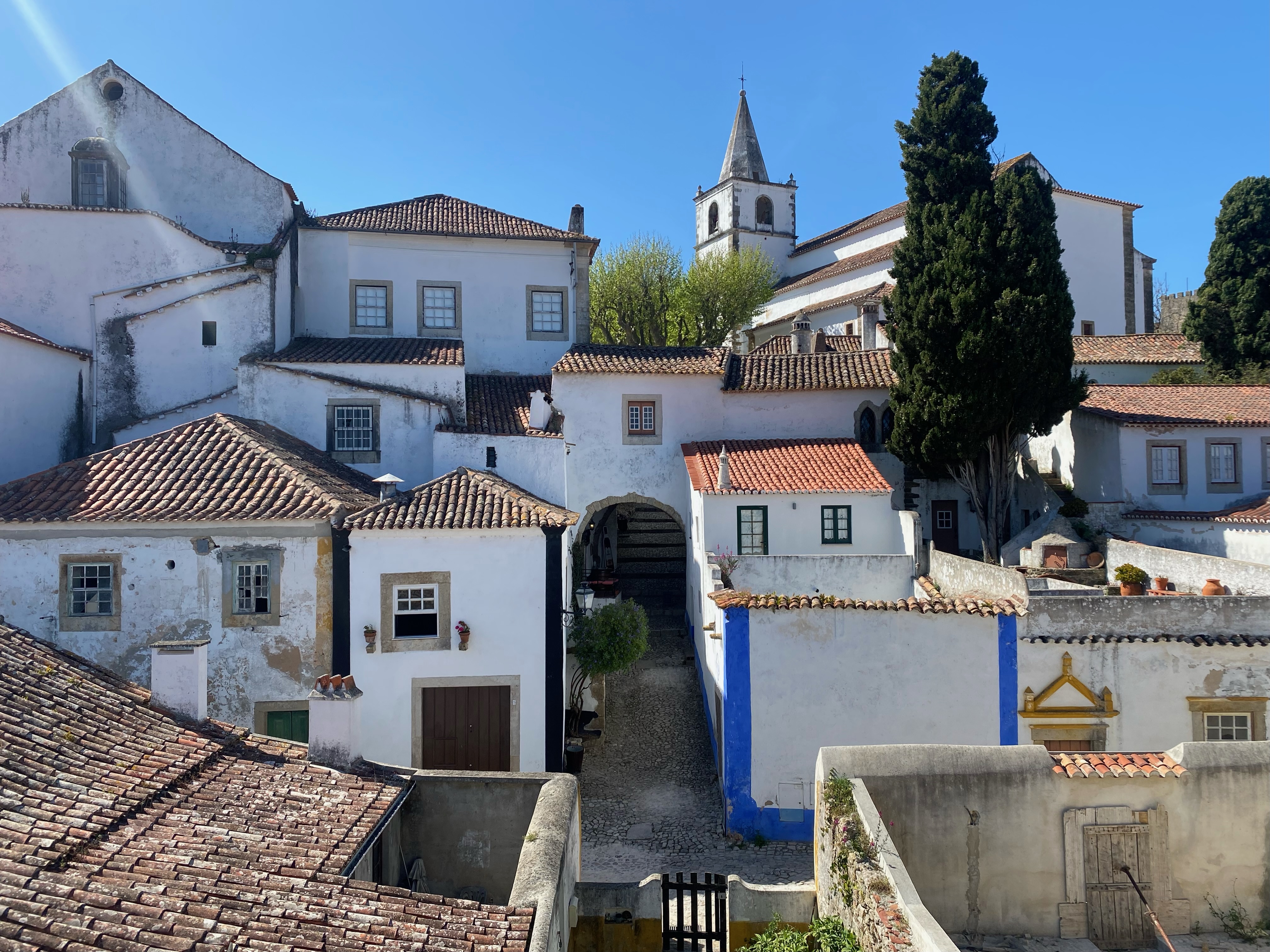
Obidos, Portugal, April 2023
Just a few more days to go — and I can already feel that familiar spark of excitement building. Soon, I’ll be back in Portugal, even if it’s only for a little over a week. Time will be short, but there’s something about returning to a place that feels like home that makes every moment count.
I can already picture myself wandering the cobbled streets of Óbidos, with its whitewashed houses, bright flowers spilling from balconies, and that medieval charm that never gets old. There will be drives through the countryside, lingering lunches, and those quiet moments by the ocean that I’ve missed so much.
There’s another reason this trip feels extra special — I’ll be catching up with dear friends I haven’t seen in far too long, and this time, I’ll also be sharing it all with some of my Venezuelan friends. Hosting them in a place I love will make the experience richer, and I can’t wait to see it through their eyes for the first time.
Short trip or not, I know it will be packed with laughter, good food, and that easy joy that comes from being in the right place with the right people.
A Spoonful of F75
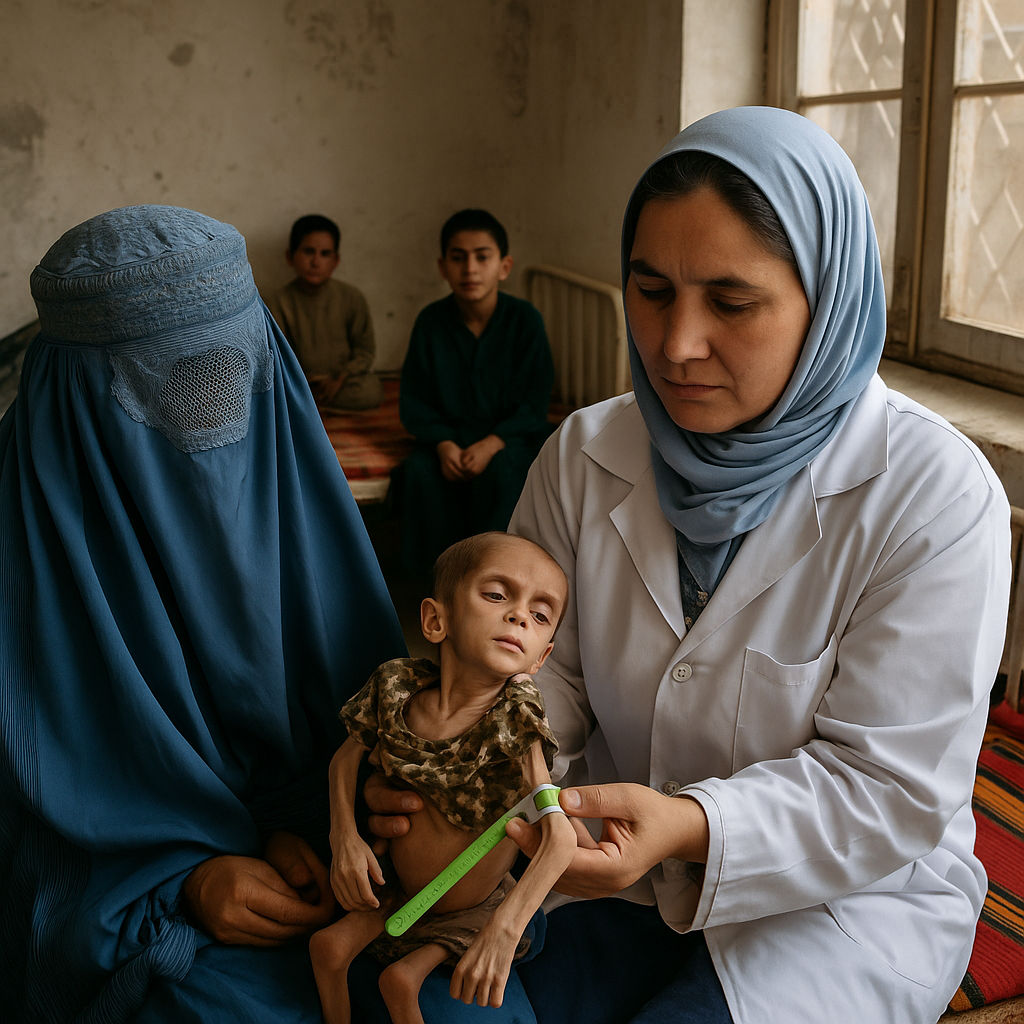
Image of the Nutritional Centre in Kabul
Over the past months, I’ve been immersed in writing my memoir — a journey through the many places, people, and moments that have shaped my life. Today, I found myself working on a chapter that takes me back to the very start of my humanitarian career, in Afghanistan in 1999–2000, under Taliban rule.
With World Humanitarian Day approaching, I want to share this passage with you. Though written as part of a fictionalised narrative, it is not far from the truth. The people, the challenges, and the choices reflect realities I have witnessed — impossible situations, extraordinary courage, and suffering that often defies words.
I hope it will spark reflection on what some people must endure simply to survive.
Over the next days, Kacper was taken, step by step, into the quiet heart of GNI’s work in Kabul. There was the ward in the Indira Gandhi Hospital — crowded, hot, and heavy with the sharp, medicinal scent that clung to the air — the smell of a place where life was held together by thin threads — and then the scattered nutritional centres in neighbourhoods further out, where the dust was thicker, the streets narrower, and the war seemed to press closer against the walls. Some were on the edge of the city, almost touching the mountains; others were tucked into quiet courtyards where children’s voices carried through cracked wooden doors.
He was never alone. Amélie, calm and precise, would speak in the measured rhythm of someone used to explaining difficult things. She unfolded the technical side of the work — the weighing, the measuring, the careful re-feeding — until he could almost recite the process himself. Jawed was the other constant. He was the translator not only of language but of the unspoken rules that kept them safe: how to greet an elder, when to lower your gaze, what to say and what never to say under Taliban rule.
It was Jawed who explained the boundaries — that once inside the safety of a GNI compound, the walls gave more than shelter; they gave space for women to be seen. Nurses, doctors, cleaners — their faces uncovered, their voices strong, their laughter carrying in from the courtyards — would welcome him into their world. Under the folds of their burqas were women with fierce intelligence, quick humour, and the quiet defiance of those who refused to stop saving lives.
Kacper listened to them, and slowly began to understand that malnutrition was not simply hunger. Hunger could be satisfied with a meal. Malnutrition was a slow, invisible thief that began its work long before a child’s first cry.
It began in the body of a mother already weakened by years of scarcity, her bones light from not enough food, her blood thin from lack of iron. Poverty was the soil it grew in, but there were other roots: the weight of cultural rules that placed women last at the table, the absence of healthcare that could catch a problem early, the exhaustion of carrying and birthing children too close together. A malnourished mother gives birth to a child already fragile, sometimes too small, sometimes without the strength to suckle.
Without enough food or the right food, she cannot produce enough milk. Without clean water, illness comes quickly. Diarrhoea drains what little strength the child has, fever burns through reserves, a cough lingers and eats away at the body’s defences. Slowly, weight slips away until skin hangs loose over bone, or swelling from oedema gives the false impression of health while the body is collapsing inside.
Malnutrition was not one thing, Kacper realised. It was an entire chain of events — a web of hunger, illness, and neglect, tangled further by tradition and inequality. And in the worst cases, it became a sentence.
There was a line between life and death, and GNI’s work stood on it. Amélie explained that when a child arrived in the worst stage — severely malnourished and unable to digest normal food — giving them a plate of rice or bread could kill them. “Their bodies cannot handle it,” she said softly. “The machinery has shut down. You must wake it slowly.”
That was where F75 and F100 came in — powders mixed with clean water to make a liquid that was not milk in the ordinary sense, but a carefully balanced formula of sugars, oils, proteins, vitamins, and minerals. F75 was the starting point, a gentle reintroduction of fuel to a body on the brink. It gave just enough energy for the organs to begin working again without overloading them. When the child’s body had stabilised, they moved to F100 — richer, more calorific, building weight and strength day by day.
“This is not milk,” Jawed told him, holding up a silver packet in the warehouse days later. “This is a key. Without it, the lock stays closed. If the supply fails — if it is delayed, lost, or runs out — you close the door on them.
Kacper could see it now — how every link mattered. A mother’s decision to bring her child. A nurse’s skill with the feeding cup. A cleaner’s care in keeping disease away. A driver’s ability to get supplies through a checkpoint. His own responsibility to keep the warehouse stocked. If one link broke, the child did not make it.
And then there was the cruelty of culture. Fathers, sometimes without malice but bound by old beliefs, would refuse treatment — especially for girls. Girls ate last, and least. To survive to the age of five was almost a miracle for them. Even then, survival came with scars: stunted growth, damaged minds, and bodies less able to fight the next illness that came along.
Yet in these centres, miracles were made daily. The women of GNI — nurses who fought for each tiny patient, doctors who argued with fathers until they relented, cleaners who brought comfort to grieving mothers — held the line. They treated infections. They buried the children they could not save. They stood in the gap between death and survival, teaching families not only how to pull a child back from the edge but how to keep them from returning to it. They taught with whatever the context allowed: how to make nourishing food from the smallest gardens, how to store clean water, how to use seeds and scraps to keep hunger at bay. And, quietly, how to find strength if the danger in the home could not be escaped.
It was only later, after walking out of one of the centres, that Kacper found his thoughts drifting to Zakopane. To the smell of disinfectant in the wards, the creak of the wooden floors, the way his mother’s face lit up when she was allowed to visit. He had thought, as a child, that he understood what it meant to fight for life — and in his own way, he had. His condition had been complex, the treatments painful, the path uncertain. He had survived because others had fought for him: his family, his doctors, even strangers far away.
But here, the fight was different. Stripped bare. This was not about intricate surgery or rare medicines. It was about whether a child could eat enough to live. Whether the water they drank would keep them alive or kill them. Whether a mother could keep her baby nourished long enough to see another season.
His battle had been hard, but it had never been this. He had never had to wonder if there would be food on the plate or clean water in the cup. And he knew now that the difference was not a measure of whose suffering weighed more, but of how survival could depend on the most basic things — and how, without them, the margin between life and death could be as thin as a spoonful of F75.
And as he walked back through Kabul’s dust, past walls pitted with years of war and markets alive with the stubborn hum of life, he felt something shifting inside him — a quiet tether being tied, thread by thread, to this wounded, unyielding city.
Yes, you guessed it — Kacper is me.
In Anticipation of World Humanitarian Day

My Office in Panama City, Panama, June 2024
As 19 August approaches, I find myself pausing more than usual, reflecting on what it truly means to mark World Humanitarian Day.
This year feels different — heavier, perhaps. The humanitarian needs across the world are staggering, overwhelming in their scale and urgency. From conflict zones to climate disasters, millions are left without safety, food, or shelter. And yet, as these needs grow, the world seems to lag ever further behind in its response.
For many of us who work in this space, it’s not just about underfunded appeals or dwindling resources — it’s the quiet, corrosive shift in how humanitarianism itself is treated. Too often, aid is manipulated for political gain, instrumentalised to serve agendas that have little to do with saving lives. Worse still, we see attempts to criminalise humanitarian action, to make compassion suspect, to brand the act of offering a helping hand as something to fear or punish.
What cuts deepest is that sometimes, these pressures and abuses come not from hostile regimes but from governments and countries often perceived as open, democratic, and supportive of humanitarian principles — places once seen as allies of humanitarianism. It’s painful. It shakes the very foundations of what drew many of us to this work — the belief that solidarity transcends borders, politics, and prejudice.
Even more heartbreaking is how often we see human suffering deliberately used as a weapon. Starvation, displacement, and the denial of medical care are tactics in conflicts around the world. They are not accidents of war; they are strategies — ones that leave civilians trapped, suffering, and voiceless.
All of this goes hand in hand with an increasing lack of respect for International Humanitarian Law (IHL). In simple terms, IHL is a set of rules designed to limit the horrors of war: to protect civilians, hospitals, schools, and aid workers; to ensure that even in conflict, some lines must not be crossed. It exists not as lofty theory but as a hard-earned safeguard, built on the lessons of unimaginable past atrocities.
I cannot stress enough that upholding IHL is everyone’s business. We are all responsible for demanding accountability from those who violate it. Because when these protections collapse, it is not abstract ideals that suffer — it is people.
I’ve seen it repeatedly: places that seemed prosperous and safe, where life felt unshakably normal, suddenly plunged into crisis, into war. Entire societies that believed “this cannot happen here” found themselves dependent on humanitarian aid, clinging to the protections of IHL.
This is why World Humanitarian Day matters. It is not just a date on a calendar but a quiet act of defiance — a reminder to ourselves and to the world that compassion cannot be outlawed, that humanity cannot be politicised away, and that even when institutions falter, individual acts of solidarity still matter.
